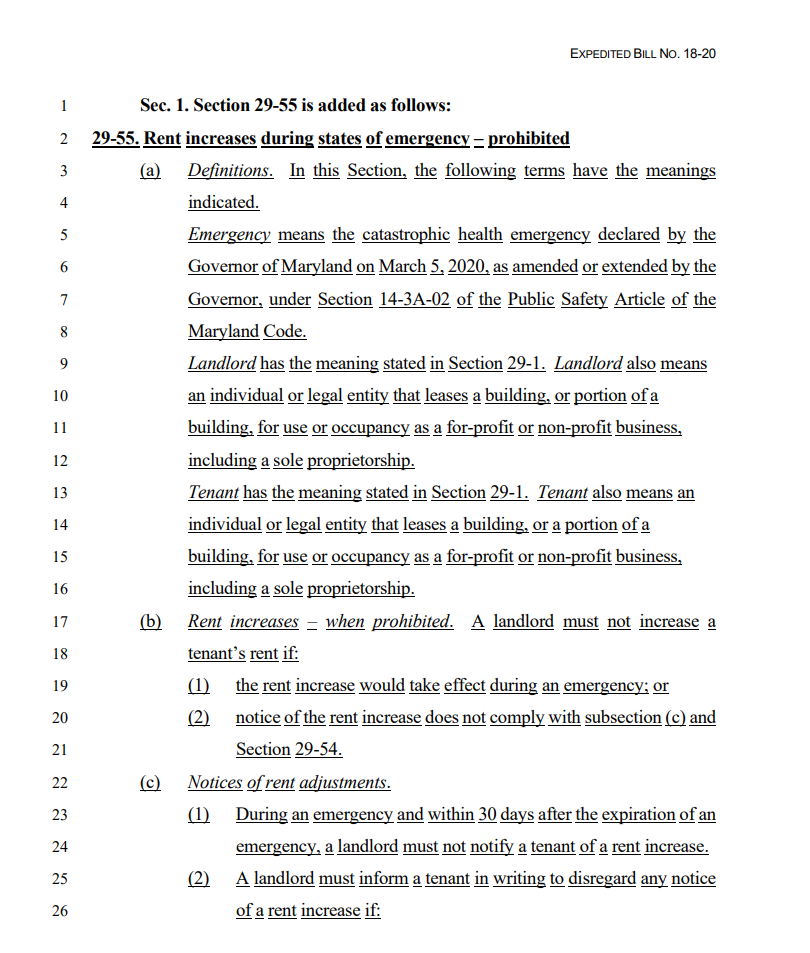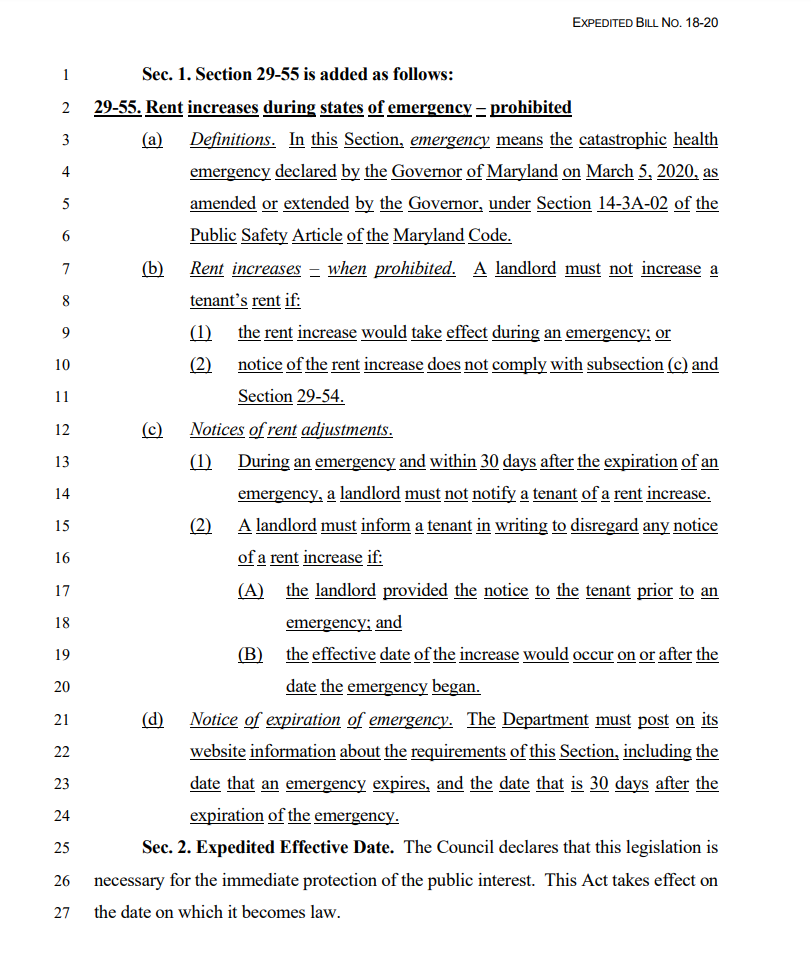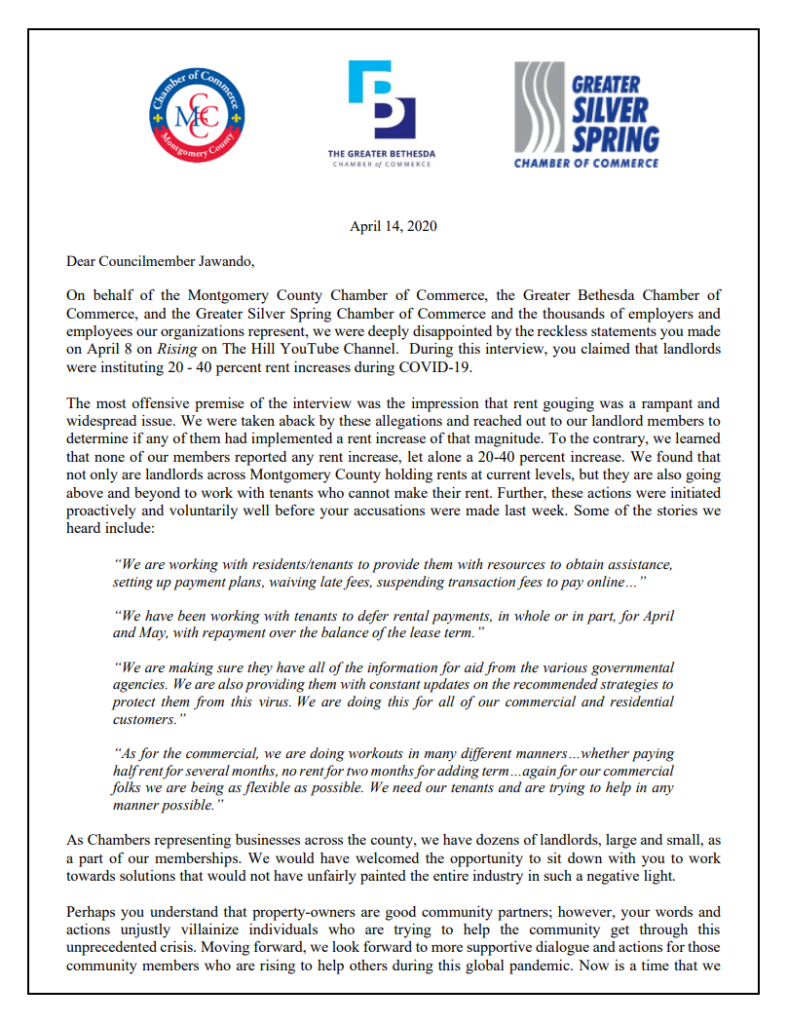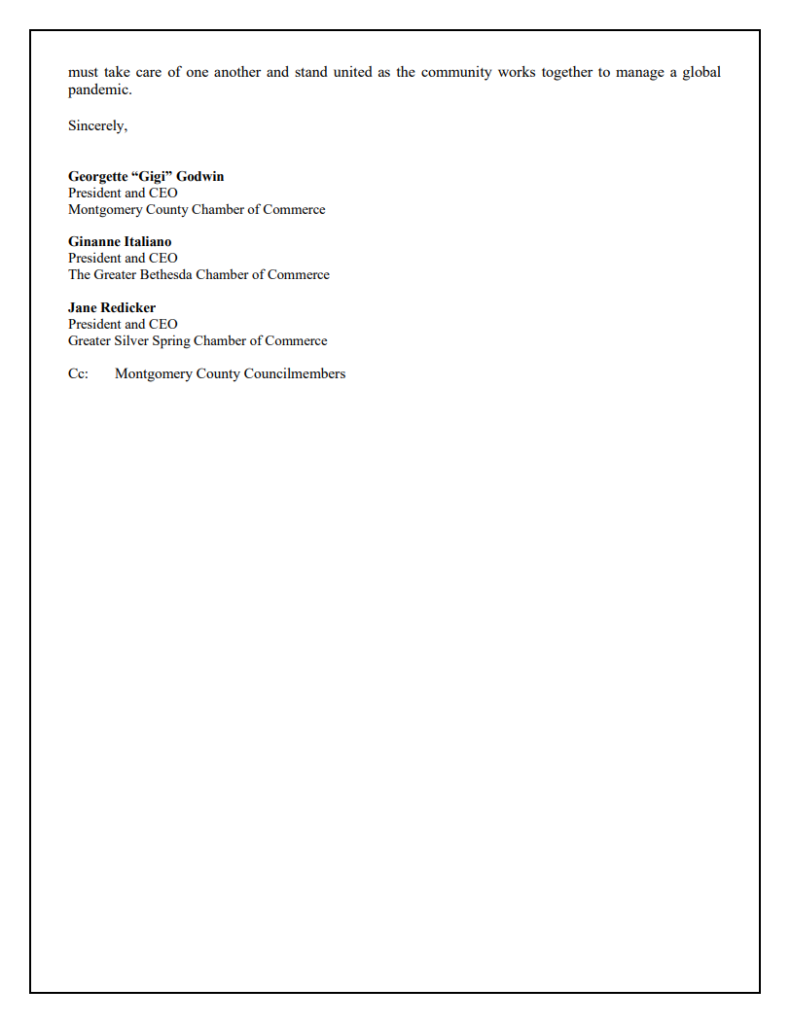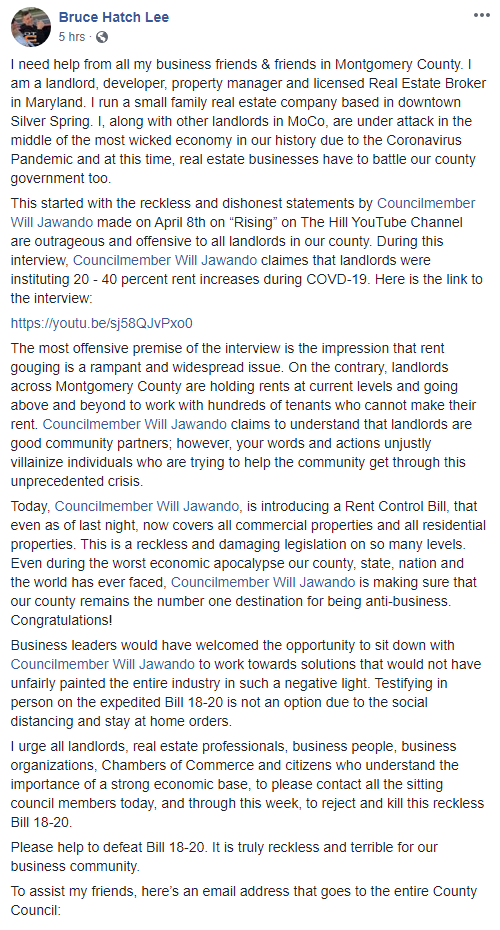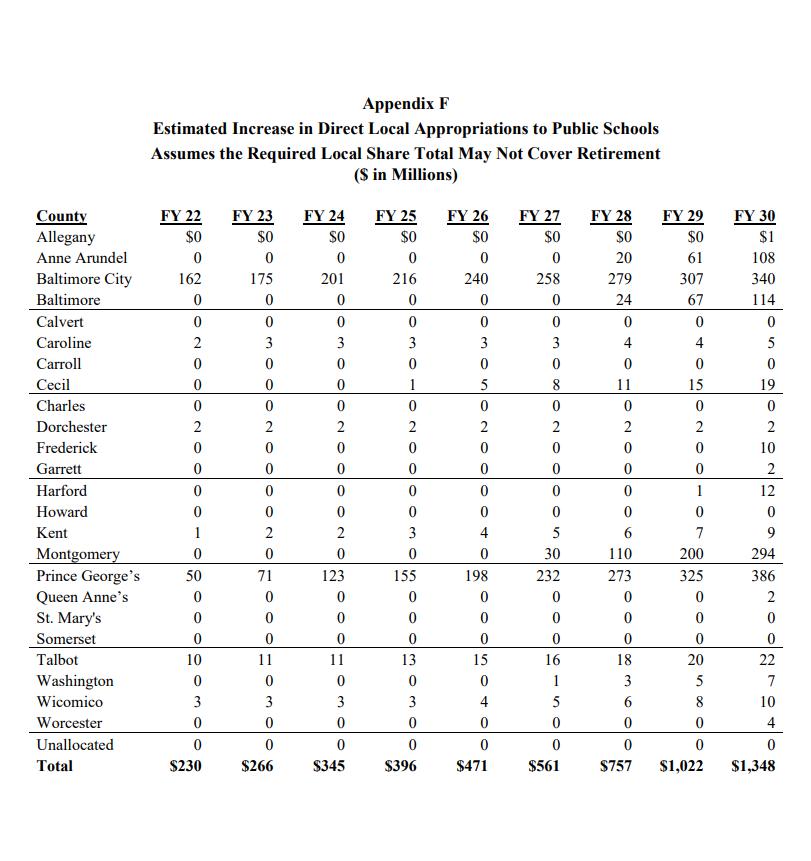Montgomery County Councilmember Will Jawando (D-At Large) introduced legislation to temporarily suspend the county bag tax and enact rent control to respond to the COVID-19 crisis. The first has already bit the dust and it looks increasingly like the second should too.
Bag Bill Bagged
Councilmember Jawando introduced a bill to suspend the county bag tax during the health crisis. Though cosponsored by all of his colleagues, except Councilmembers Evan Glass (D-At Large) and Tom Hucker (D-District 5), the bill received a lot of pushback.
Much like Councilmember Hans Riemer’s (D-At-Large) bill to allow businesses to suspend payments for alcohol to the county monopoly, it faced the problem that bonds are tied to the revenues. Additionally, the environmentally-focused Sierra Club was not happy.
In a rare story for a bill sponsored by seven of nine members, it was on the fast track to defeat instead of passage. Most would have let the bill die quietly at this point. Mystifyingly, Jawando chose instead to announce a full retreat by declaring victory:
Councilmember Will Jawando plans to withdraw Expedited Bill 17-20, Carryout Bag Tax Suspension after working collaboratively with members of the community. . .
County Health Officer Dr. Travis Gayles recommends “a number of strategies for using reusable bags including washing them between use, customers packing their own reusable bags at check out and frequently cleaning surfaces in baggage areas.”
In addition, the Department of Environmental Protection has agreed to work on a campaign and resources to remind consumers to wash their reusable bags that can be posted at grocery stores and retail establishments.
Jawando can trumpet his success in finding an “alternative solution” but it sure sounds suspiciously like the status quo.
Rent Control: A Solution in Search of a Problem?
Now, Councilmember Jawando is pressing ahead with a rent control bill that is scheduled to have a hearing on April 21 (tomorrow) and a full council vote on April 23 (Thursday).
Jawando has explained to the media that his office has received “multiple reports” of rent going up 20, 30, 40 percent. He also expressed concern that at the end of the crisis that “You’re going to see people try to raise rents to get out people who can’t pay. And then you’re going to see a spike in evictions and then you’re going to try to bring people in at higher rents to recoup the loss.”
As Adam Pagnucco previously reported, the chambers of commerce have pushed back very hard on these claims:
We were deeply disappointed by the reckless statements you made. . . claim[ing] that landlords were instituting 20 – 40 percent rent increases during COVID-19.
The most offensive premise of the interview was the impression that rent gouging was a rampant and widespread issue. We were taken aback by these allegations and reached out to our landlord members to determine if any of them had implemented of that magnitude. To the contrary, we learned that none of our members reported any rent increase, let alone a 20 – 40 percent increase.
The claim that widespread rent hikes are now happening makes no sense.
No landlord wants to lose a regularly paying tenant now even if they have to make some adjustments and take some losses. There is no guarantee you can fill the vacancy and you certainly won’t be able to do so until this crisis ends.
If anything, rents may fall as demand declines due to mass unemployment. So much for recouping losses by jacking up rents, which is just not how rental markets work. Landlords can only charge what the market will pay.
If a landlord tries to raise rents now, tenants can just not pay due to the moratorium. Such a mean and stupid landlord may well be out even more rent as well as all of the time and expense of evicting someone once that is again legal. The landlord then also loses yet more rent due to the time it takes to fix the place up again, if needed, and to find a new tenant.
Jawando’s specific claim that landlords will raise rents in order to evict non-paying tenants makes even less sense as that will not allow a landlord to evict their tenant any more quickly. If anything, the tenant will appear even more sympathetic to landlord-tenant court judges who will be very disinclined to evict anyone during the immediate aftermath of this crisis anyway. Remember that evictions are a lengthy legal process.
In short, if it doesn’t make any sense even from an amoral greed perspective, is this really happening on a widespread basis? It might be better to explore specific situations and address any bad actors on an individual basis. I wouldn’t think landlords would want to be publicly exposed as raising rents right now.
In an email response to my request for specific information, Jawando stated that his bill “supports” landlords and tenants alike:
Some landlords have thankfully already decided not to impose the burden of a rent increase on their tenants during this time . . . The intention of Bill 18-20 supports the action of these landlords while protecting other tenants whose landlords have not made a similar decision.
The idea that his bill “supports” the vast majority of landlords who have not increased rent is bizarre in light of the response of the chambers of commerce pushing back on this bill as a broad smear of how landlords have responded to the crisis.
Despite repeated requests, Jawando has not produced an iota of concrete evidence that this has occurred let alone a widespread problem that requires fast-track legislation:
Some of the tenants who have contacted our office are nervous about coming forward to the media as you might imagine, however when I introduced the bill, I did share several cases with increases ranging from 9% – 60%.
Except big claims and major legislation require hard evidence that should be made public. At the very least, Jawando could have by now produced redacted letters if such notices of rent increases are being distributed widely in some buildings. Regardless, any documents he has are public as he received them in his capacity as a councilmember.
Jawando’s bill has already been through several iterations, first excluding then including then excluding again commercial properties from the bill. These changes further suggest that the facts regarding the problem it is intended to solve are not known. At the very least, they aren’t being made public. Right now, all we have are unsupported anecdotes from the bill sponsor.
If this is a widespread problem, Jawando’s bill may be an appropriate response. If not, the Council should move along to address may of the other pressing problems that the county will face during and after this crisis.
The Council’s unanimous effort to fund the production of cloth masks to make sure all county residents have access to them is a much better example of good use of their time. My applause to all councilmembers for supporting this effort. More please.

